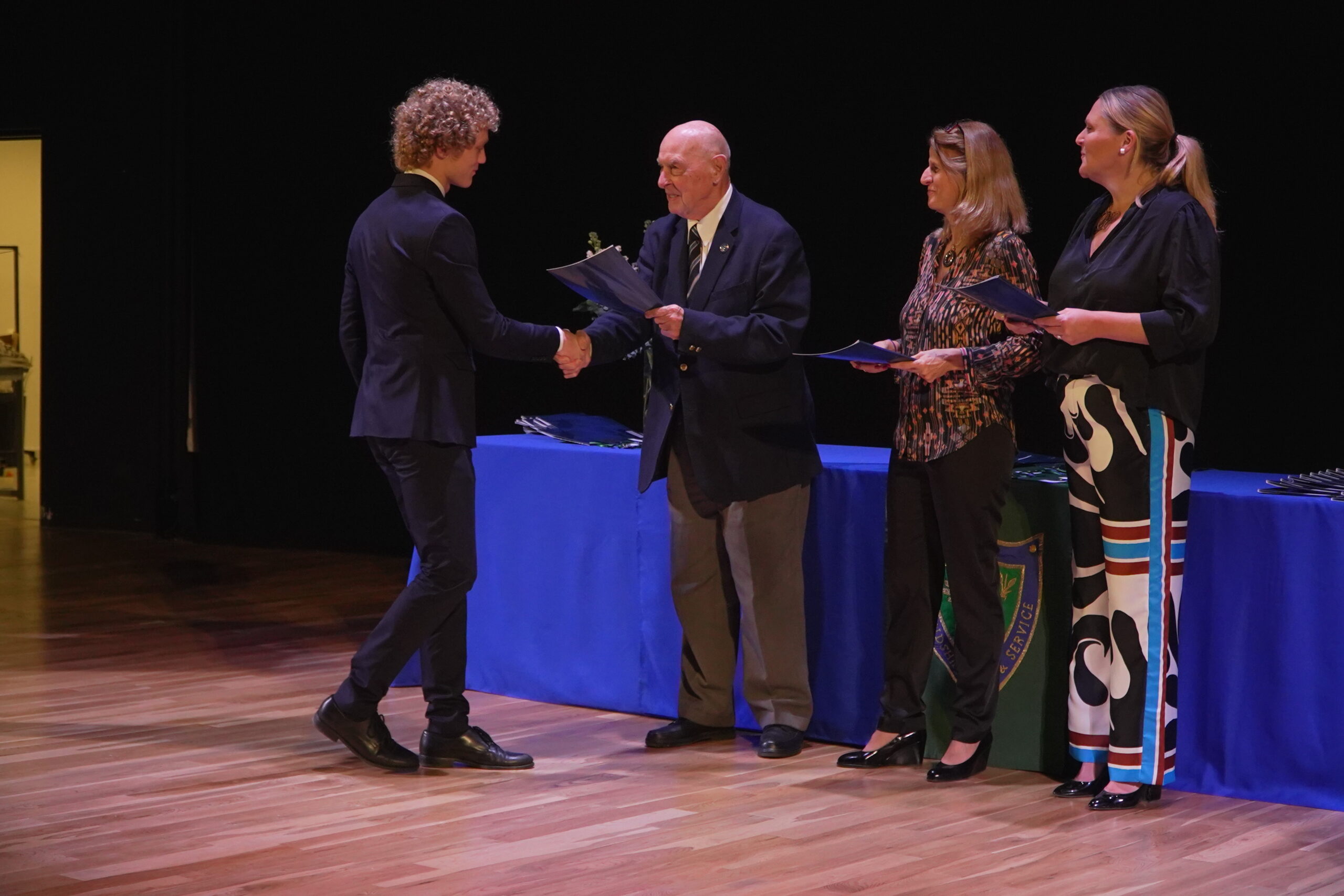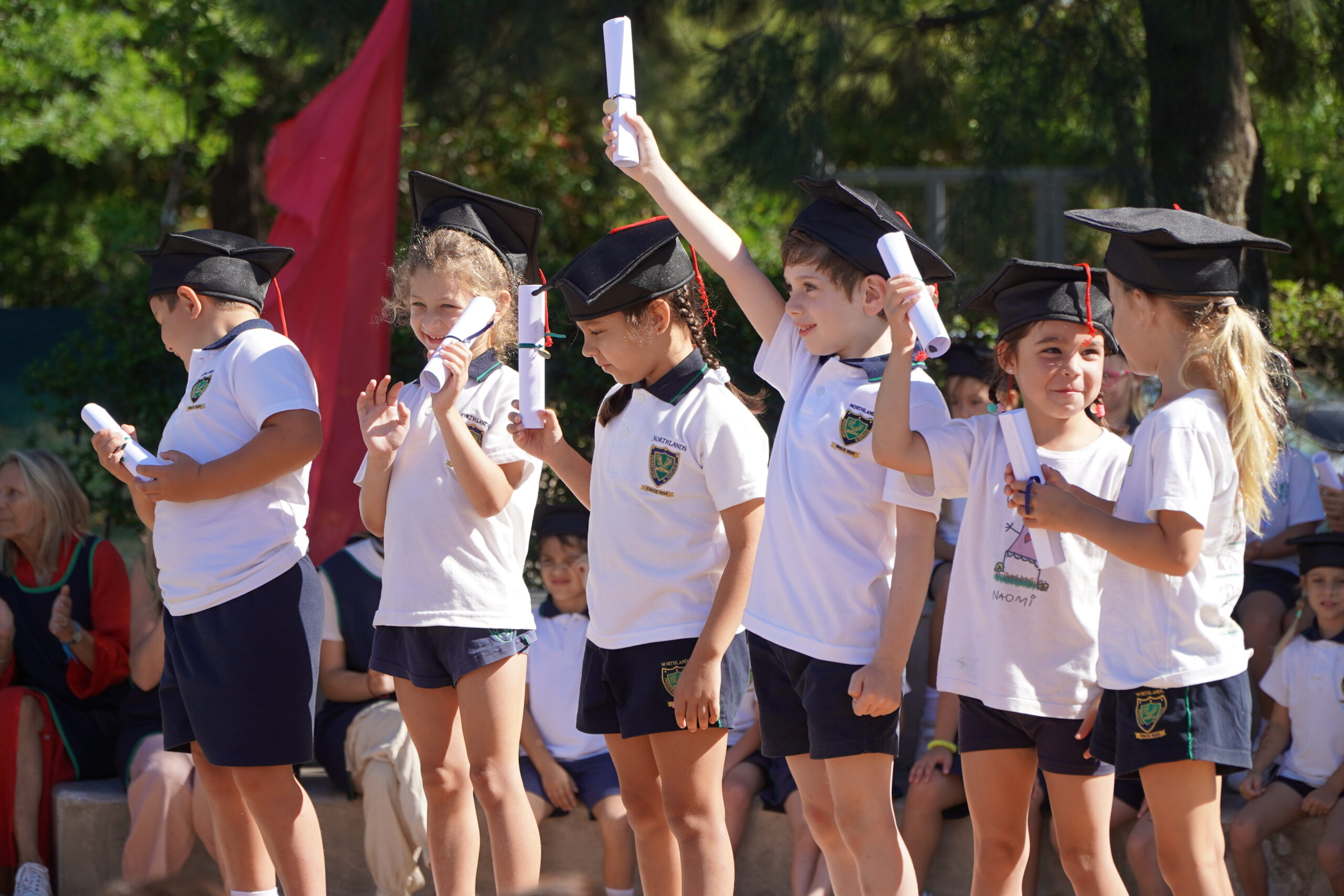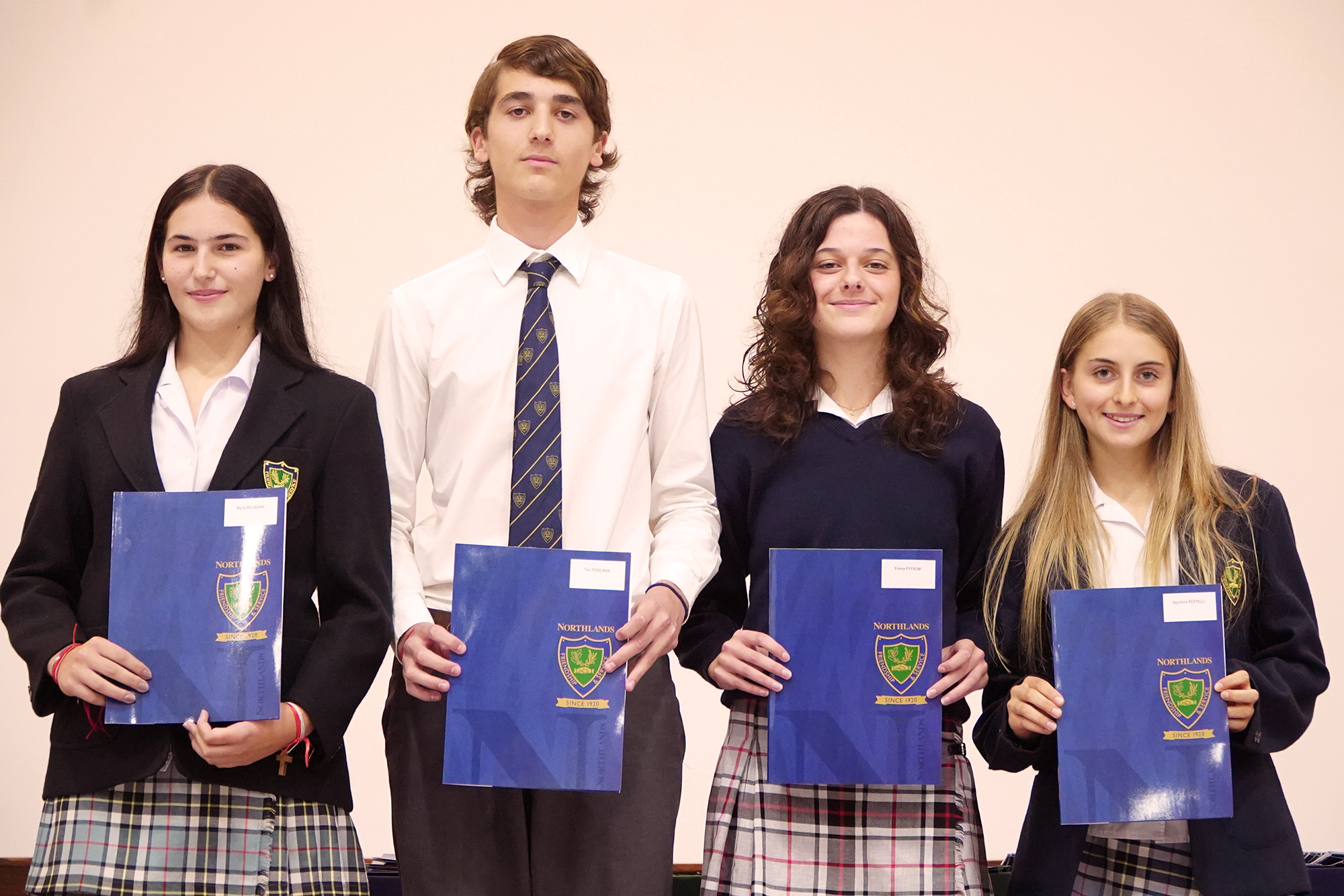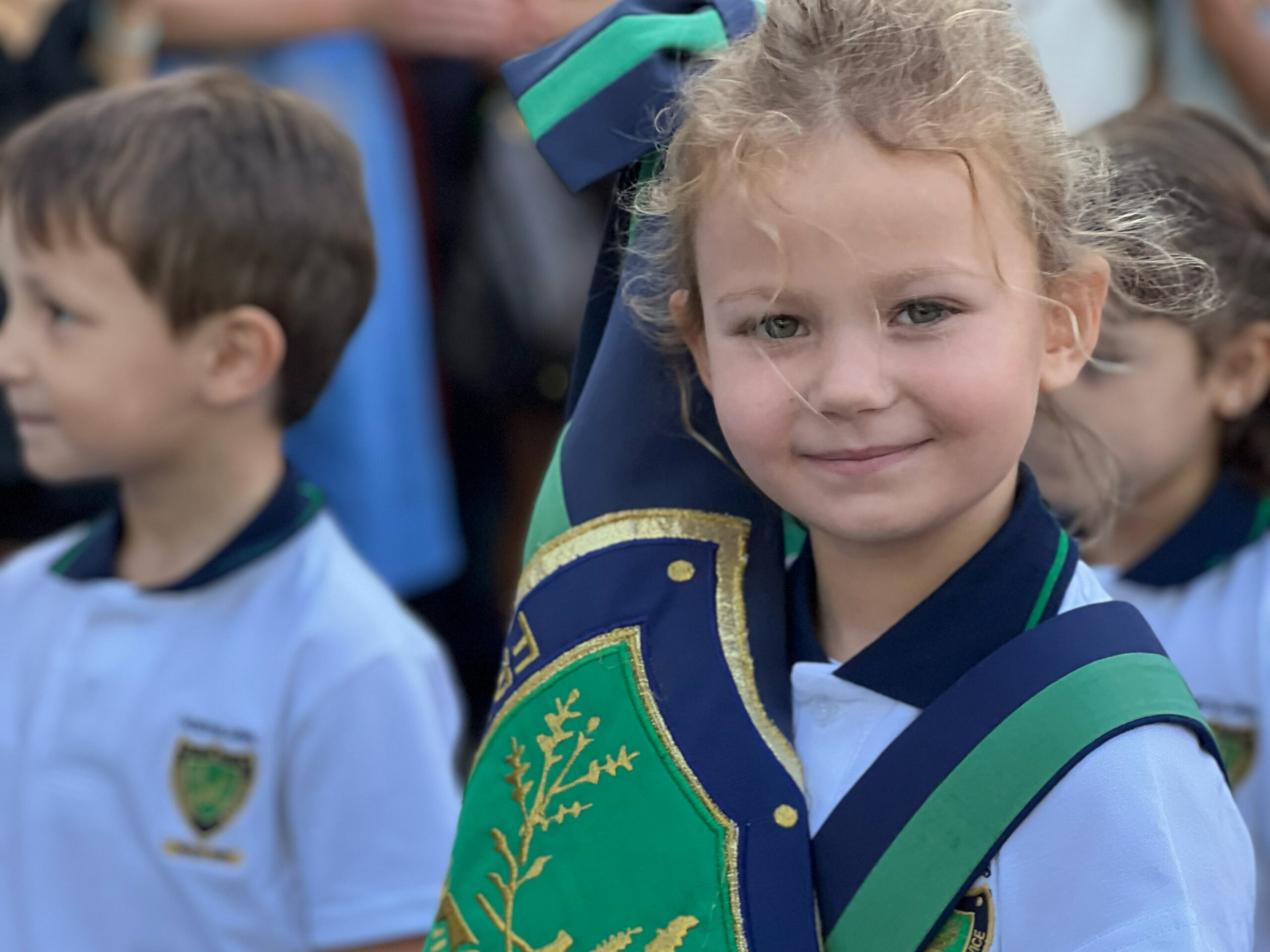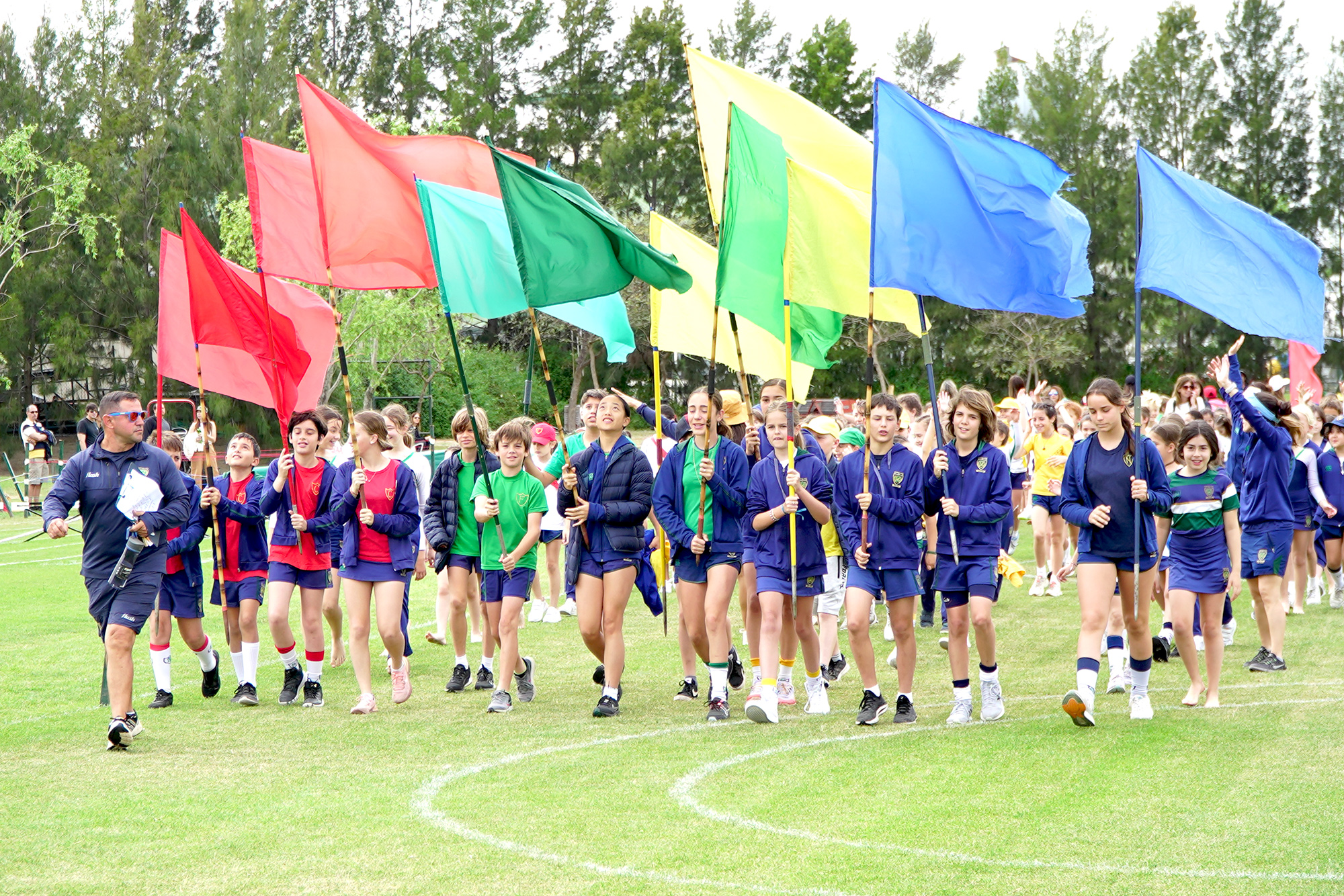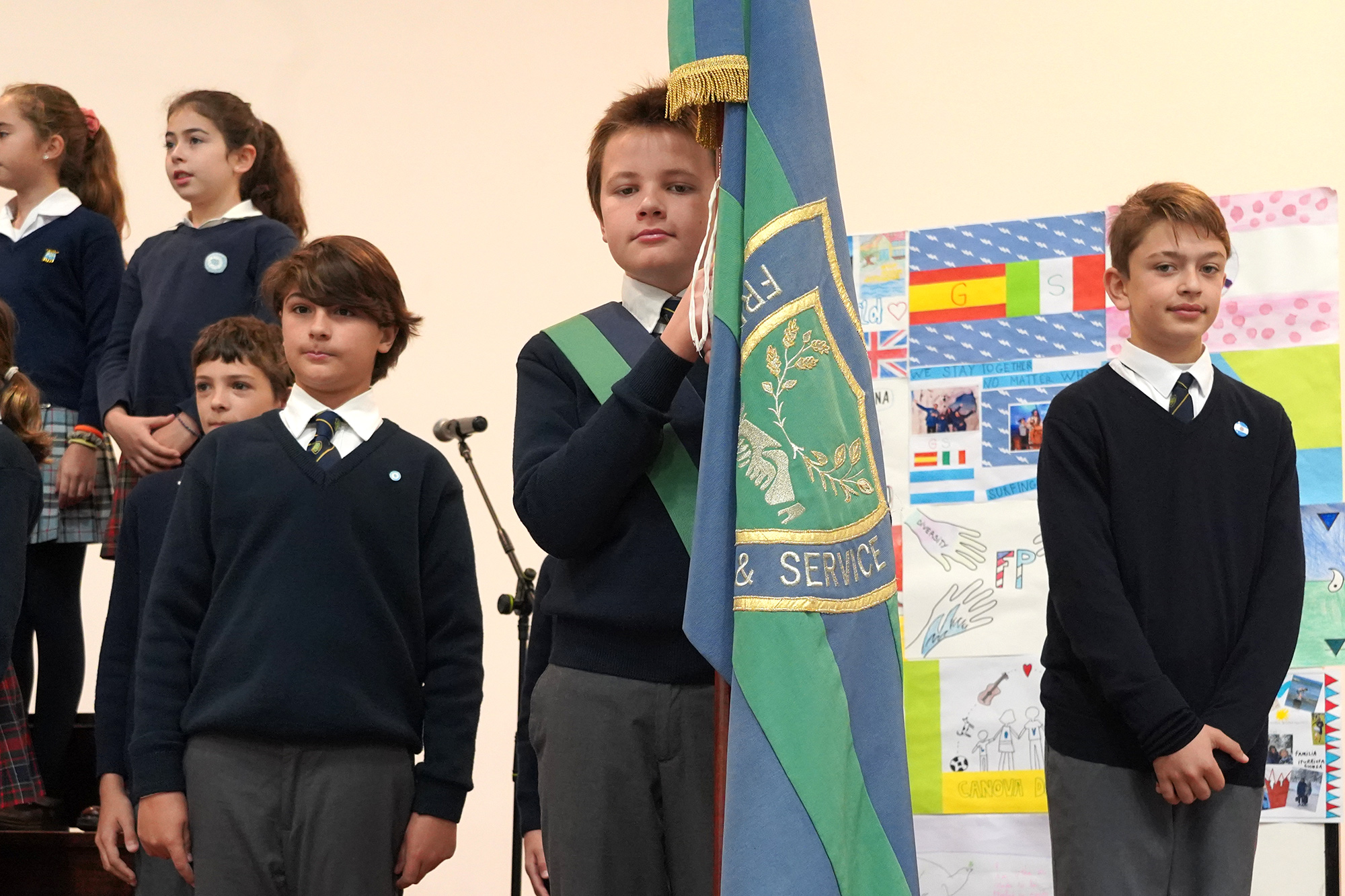The traditions we share and respect at Northlands strengthen the feeling of identification with our roots and with our commitment to educating honorable individuals, whose ethics will lead them to freely choose what is right. The Houses, the Student Council, the Captains, the Prefects and the Head Students are intended to integrate and generate spaces of participation and healthy competence among the students, since they should assume the responsibility of organizing different activities, representing their fellows, leading their groups and setting permanent example for all the students at School.
The Captain is a student who has excelled in academic, sport and service activities organized by her/his house. The Captains should also have the following qualities: leadership, communication, sense of justice and service.
Some of the Year 12 students are elected as Prefects by their classmates and teachers. These students are the ones who best embody the values of the School and they have earned the respect of the community and constitute a model for the other students. The Prefects are part of the Senior Council and they have certain responsibilities such us working in alliance with the tutors, cooperating with the organization of assemblies and representing the School at public events.
A prefect should have reached a relatively high academic level, be involved in extra curricular activities and be somebody who is committed to the School motto of Friendship and Service.
The Prefect with the largest number of votes becomes Head Girl/Boy, pending the approval of the Headmistress/Headmaster. Among the Head Student´s Duties are: organise the Student Council, chair regular meetings with the Senior Council and represent the school on formal occasions.
The Senior Council is composed by the students who have been elected as Prefects, Head Student and Deputy Head Student who conduct monthly meeting with the School authorities to exchange and discuss ideas relevant to the general well being of the School.
Students choose one class representative and one deputy representative for the Student Council. The Student Council’s function is to bring forward any doubts, suggestions or ideas to the Heads, promoting responsible social participation.
HOUSES
Since the early years at Northlands, our founder Miss Winifred Brightman was inspired by 4 exceptional women that during the past centuries had devoted their lives to helping others through selfless, brave and caring actions that had significant contributions to their communities and countries and are consequently the living example of our school motto “Friendship & Service”: These women were Edith Cavell, Elizabeth Fry, Helen Keller and Florence Nightingale. It is through each of their names that our School houses came to life. Each represented by a colour and generating school spirit through healthy competitive activities either academic or non academic, or merely as a form of grouping individuals to further strengthen bonds among them.
Edith Cavell (1865-1915) discovered her vocation as a nurse at the age of 30 while caring for her sick father. After training in London, she became Matron of Belgium’s first school of nursing, where she transformed precarious facilities into an exemplary centre. During the First World War she treated the wounded on both sides and supported underground networks against the German occupation. She was arrested, tried, and executed by the Germans on 12 October 1915. After the war, her remains were repatriated to England and received with solemn tribute.
Elizabeth Fry (1770-1845) devoted her life to transforming women’s prisons. At Newgate she calmed inmates with her serenity, brought clothing and straw for bedding, and with her Ladies’ Committee organised sewing groups and Bible readings. For two decades she travelled throughout England inspecting prisons, giving lectures and promoting reform, even while in frail health. Her dedication earned her respect and gratitude from all. At her death, even London’s most notorious criminals attended her funeral in recognition of the woman who had improved their lives.
Helen Keller (1880-1968) became deaf and blind after a fever at the age of two. With the guidance of her teacher Annie Sullivan, she learnt to communicate through the famous water episode and soon mastered reading, writing, and speech. She graduated with honours from Radcliffe University and became a prominent social activist. She defended women’s suffrage, condemned war, capital punishment, and child labour. She travelled the world giving lectures and meeting leading figures. In 1961 she suffered a stroke and died on 1 June 1968, leaving an inspiring legacy.
Florence Nightingale (1820-1910) chose to dedicate her life to nursing despite her family’s opposition. During the Crimean War she organised care in Scutari, where she dressed wounds, oversaw operations, and comforted the dying, earning the name “The Lady with the Lamp”. Her tireless work revolutionised nursing and caught the attention of Queen Victoria, to whom she appealed for better conditions for soldiers. She was the first woman to receive the Order of Merit from the British Crown. She died on 13 August 1910, aged 90, leaving an enduring legacy.
